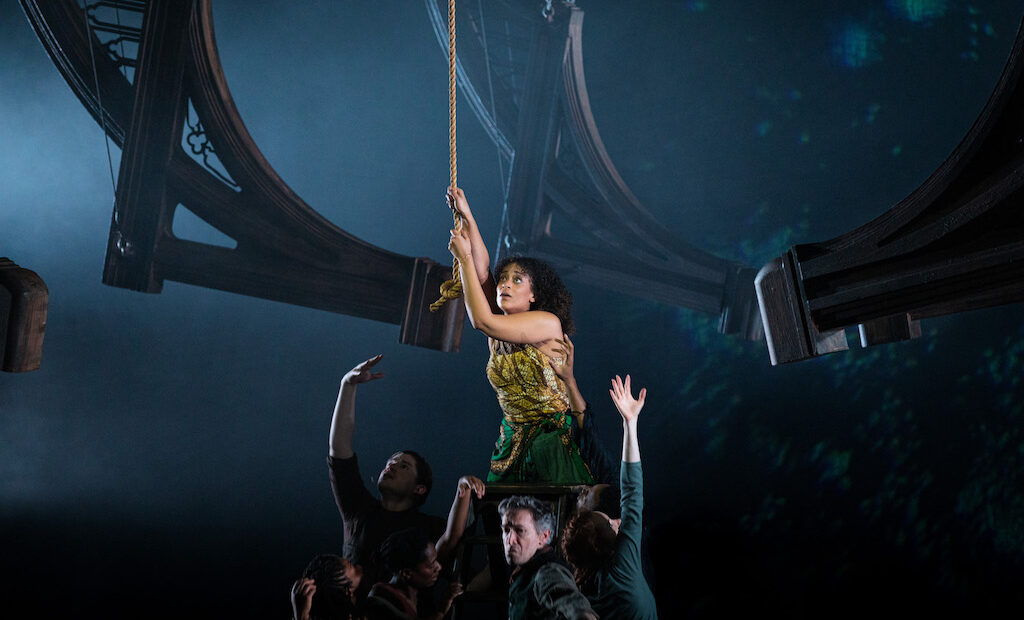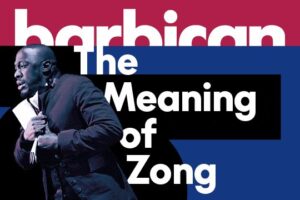The Meaning of Zong at Barbican Theatre

It is all too easy to shy away from the past, especially when it concerns the more unpalatable aspects of human history. Aside from its mission to entertain, theatre of course holds the power to enlighten and inform. Giles Terera’s tale does exactly that, shining a light on one of the many darker moments of British history and one in particular that most are unaware of. In fact, Terera only heard about the Zong massacre in 2014. 132 Africans were thrown overboard a slave ship that had inexplicably veered off-course and subsequently experienced a shortage of provisions. The ship’s owners claimed insurance on their lost “cargo”. A former slave, named Olaudah Equiano, who had bought his own freedom, learned of the events and soon sought the help of Granville Sharp, a renowned anti-slavery campaigner. The two took the matter to Westminster Hall, with their actions ultimately contributing to the abolition movement in the UK.
Terera knew he had the seeds of a play, but would there be an appetite for a narrative many might instinctively retreat from, so ingrained is the trauma, guilt and shame associated with slavery? While fully acknowledging this, Terera tells his tale in an honest, open and well-rounded manner, conveying his points without ever exploiting the subject matter or sacrificing its authenticity for mere theatrics.
In many ways this is bare-bones storytelling. The ensemble is on-stage as the audience filters into the expansive space of the Barbican Theatre. During some of the court scenes the house lights flood the auditorium, inviting us to be jurors or witnesses to the events we are presented with. Direct address is effectively employed, reminding us that we are watching a play and that, although its setting might be the 18th century, the ramifications of slavery and all we associate with it are still prevalent in the modern world.
Terera adopts the West African tradition of storytelling, whereby storyteller, writer and performer are one. Performing, writing and directing his own play results in an impassioned, urgent, informed and astute portrayal. He is well supported by a committed cast. While there is good use of video on occasion and effective scenery such as the wooden beams of Westminster Hall morphing into the bones of the ship, much of the narrative is delivered through song, dance and an array of impactful tableaus. Sidiki Dembele underscores the action with pulsating on-stage music, fuelling the tempo of this vivid and largely well-paced production.
At times the audience are inundated with information; there are a lot of facts to process and several tangents to keep track of with momentum being somewhat lost in the second act. Terera and co-director Tom Morris ensure the bulk of the action is moored to the central story and we are never cast too far adrift from the messages at the core of the play. Much like protests prompt a response, The Meaning of Zong encourages more than just thought: it actively urges us to challenge the suppression, racism and bigotry that shaped our past and still shamefully seeps into our present. Terera tirelessly fought for this play to be given the platform it rightfully deserves. The standing ovation at the Barbican proves his persistence paid off.
Jonathan Marshall
Photo: Jemima Yong
The Meaning of Zong is at Barbican Theatre from 20th until 23rd April 2023. For further information or to book visit the theatre’s website here.

























Facebook
Twitter
Instagram
YouTube
RSS